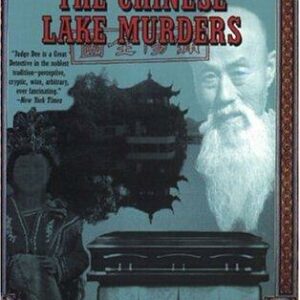Los hermanos Karamazov / The Brothers Karamazov
$14.95
| Title | Range | Discount |
|---|---|---|
| Trade Discount | 5 + | 25% |
- Description
- Additional information
Description
Fiódor Pávlovich Karamázov, un terrateniente borracho, arbitrario y corrompido, tiene cuatro hijos: Dmitri, de carácter violento; Iván, un intelectual frío y materialista; Aliosha, el hijo pequeño, pasivo y religioso; y Smerdiakov, el hijo bastardo y resentido. La novela gira en torno a las relaciones perversas que se establecen entre el padre y los hijos hasta que éste es asesinado y su presunto asesino, Dmitri, juzgado y condenado. Odio, amor, crueldad, compasión, sentimientos radicalmente contrarios y enfrentados…La presente edición de una de las obras más importantes de la literatura universal cuenta con la célebre traducción de José Laín Entralgo. Asimismo, viene acompañada de una introducción de David McDuff, traductor y crítico literario especialista en la obra del autor.«Siempre me parece que cuando entro en algún sitio soy el más miserable de todos y que todos me toman por un bufón: haré, pues, el bufón, porque todos vosotros, hasta el último, sois más estúpidos y miserables que yo.»ENGLISH DESCRIPTIONFyodor Dostoyevsky’s powerful meditation on faith, meaning and morality, The Brothers Karamazov with an introduction and notes by David McDuff in Penguin Classics. When brutal landowner Fyodor Karamazov is murdered, the lives of his sons are changed irrevocably: Mitya, the sensualist, whose bitter rivalry with his father immediately places him under suspicion for parricide; Ivan, the intellectual, whose mental tortures drive him to breakdown; the spiritual Alyosha, who tries to heal the family’s rifts; and the shadowy figure of their bastard half-brother Smerdyakov. As the ensuing investigation and trial reveal the true identity of the murderer, Dostoyevsky’s dark masterpiece evokes a world where the lines between innocence and corruption, good and evil, blur and everyone’s faith in humanity is tested. This powerful translation of The Brothers Karamazov features and introduction highlighting Dostoyevsky’s recurrent themes of guilt and salvation, with a new chronology and further reading. ‘There is no writer who better demonstrates the contradictions and fluctuations of the creative mind than Dostoyevsky, and nowhere more astonishingly than in The Brothers Karamazov’ Joyce Carol Oates ‘Dostoyevsky was the only psychologist from whom I had anything to learn: he belongs to the happiest windfalls of my life’ Friedrich Nietzsche ‘The most magnificent novel ever written’ Sigmund FreudFiódor Dostoievski nació en Moscú en 1821, hijo de un médico militar. Estudió en un colegio privado de su ciudad natal y en la Escuela Militar de Ingenieros de San Petersburgo. En 1845, su primera novela, Pobre gente, fue saludada con entusiasmo por el influyente crítico Bielinski, aunque no así sus siguientes narraciones. En 1849, su participación en un acto literario prohibido le valió la condena de ocho años de trabajos forzados en Siberia, la mitad de los cuales los cumplió sirviendo en el ejército en Semipalatinsk. De regreso a San Petersburgo en 1859 publicó ese mismo año la novela La aldea de Stepanichkov y sus habitantes. Sus recuerdos de presidio, Memorias de la casa muerta, vieron la luz en forma de libro en 1862. Fundó con su hermano Mijaíl la revista Tiempo y, posteriormente, Época, cuyo fracaso le supuso grandes deudas. La muerte de su hermano y de su esposa el mismo año de 1864, la relación «infernal» con Apolinaria Susova, la pasión por el juego, un nuevo matrimonio y la pérdida de su hija le llevaron a una vida nómada y trágica, perseguido por acreedores y sujeto a contratos editoriales desesperados. Sin embargo, desde la publicación en 1866 de Crimen y castigo, su prestigio y su influencia fueron centrales en la literatura rusa, y sus novelas posteriores no hicieron sino incrementarlos: El jugador (1867), El idiota (1868), El eterno marido (1870), Los endemoniados (1872), El adolescente (1875) y, especialmente, Los hermanos Karamazov (1879-1880). Sus artículos periodísticos se hallan recogidos en su monumental Diario de un escritor (1876). Dostoievski murió en San Petersburgo en 1881.ES
Additional information
| Weight | 28.5008 oz |
|---|---|
| Dimensions | 1.9000 × 5.0000 × 7.5000 in |
| Imprint | |
| Format | |
| ISBN-13 | |
| Author | |
| Audience | |
| Subjects | american literature, short stories, thrillers, collection, socialism, modernism, victorian, sci-fi, literary fiction, americana, historical romance, translation, classic novels, english literature, russian, plays, classic literature, classic books, fiction books, books fiction, classics books, classic fiction, russian literature, romance, feminist, feminism, adventure, historical, war, crime, psychology, american history, gothic, classic, school, philosophy, love, drama, fiction, mystery, classics, fantasy, roman, civil war, novels, prison |











